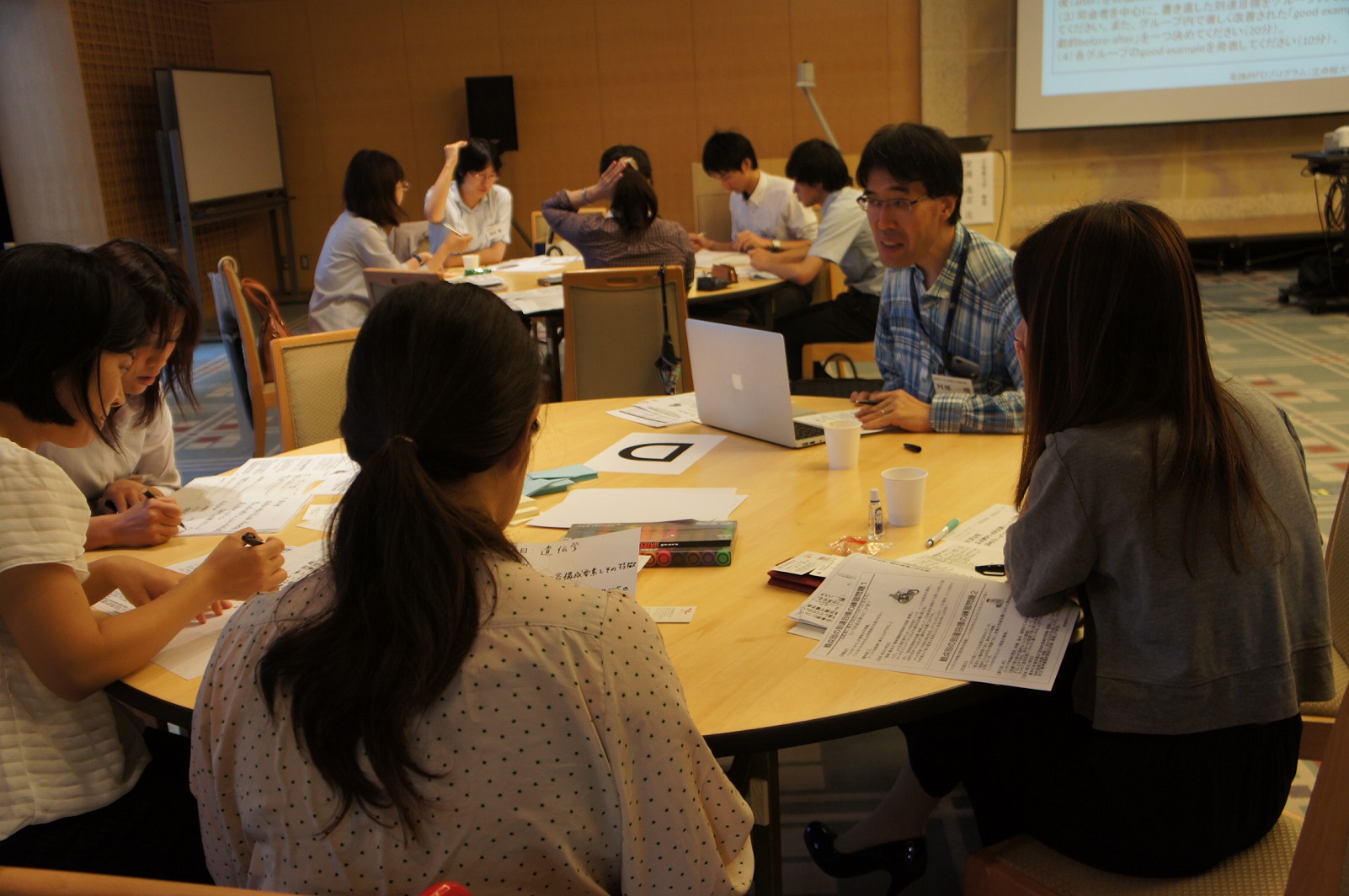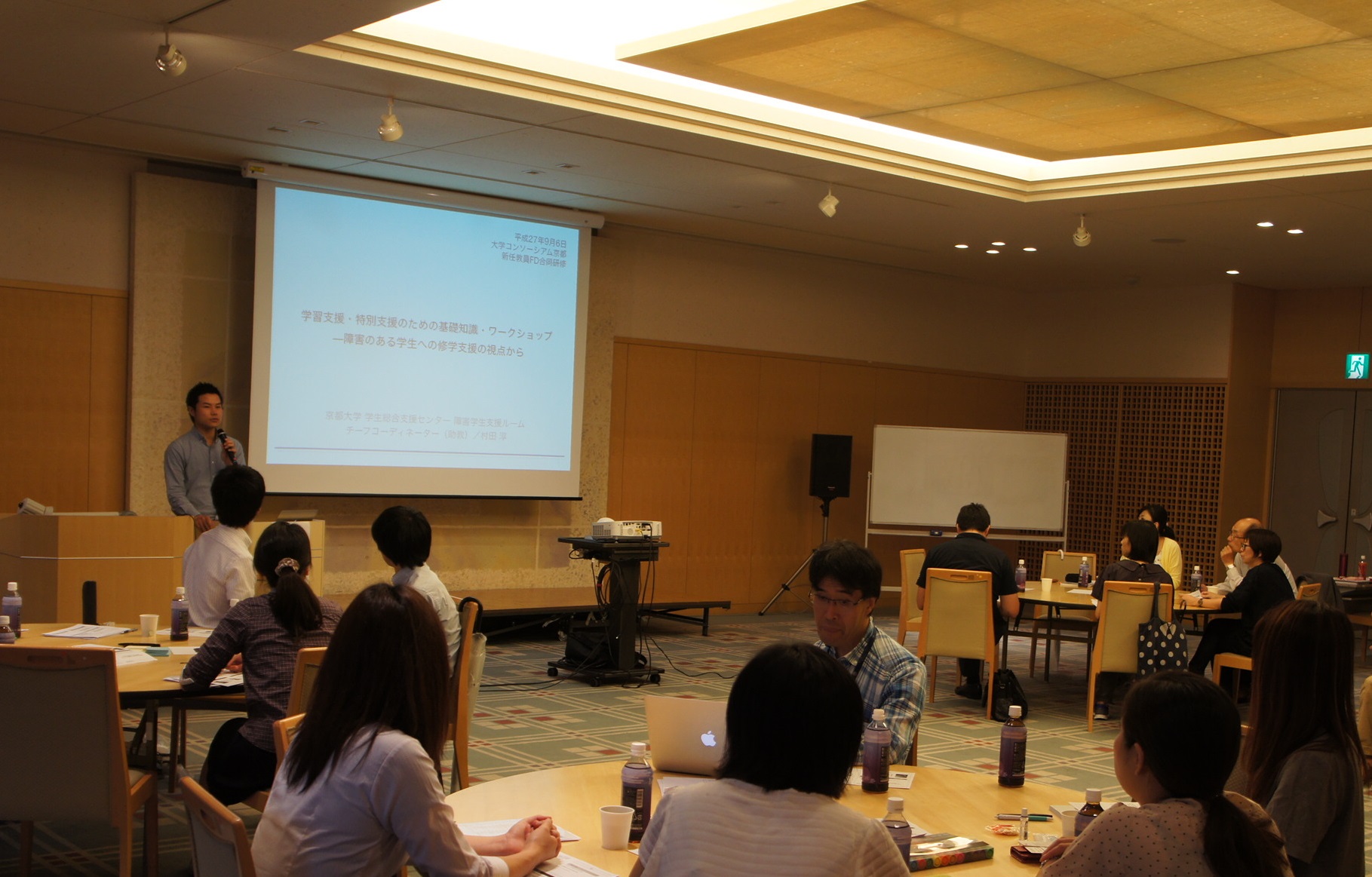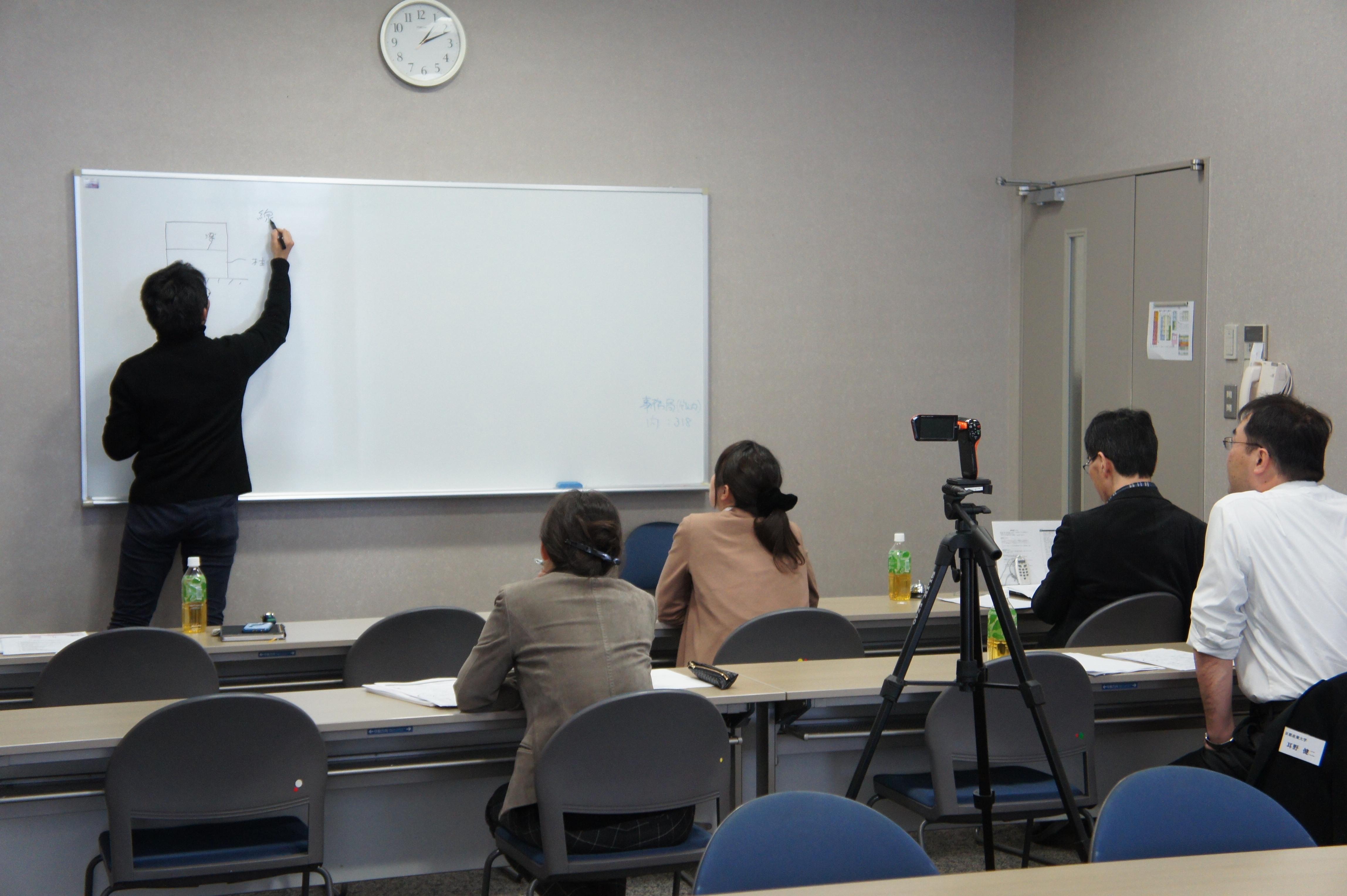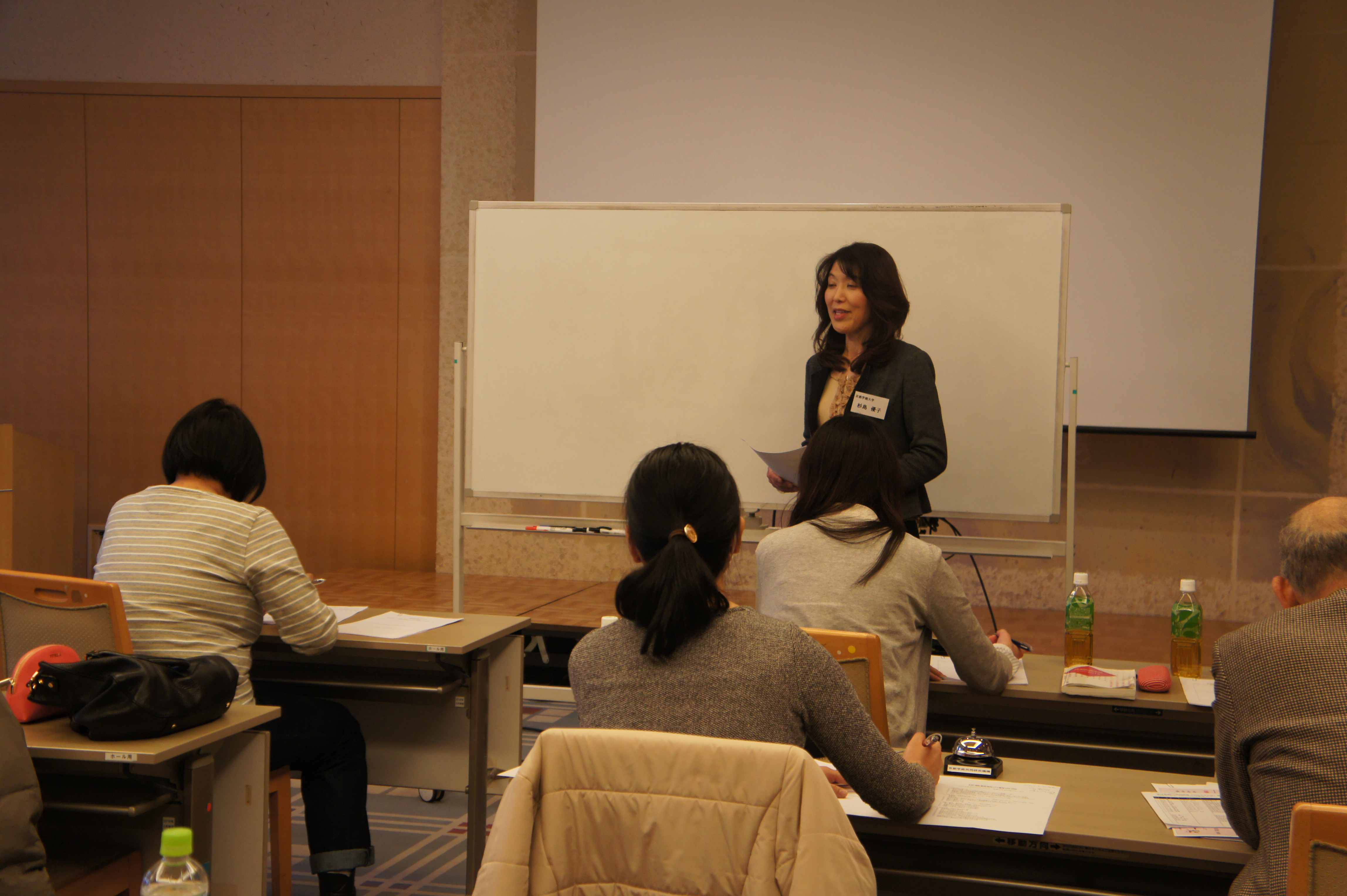Business Overview
As an organizational effort for faculty members to improve and enhance their teaching content and methods, the University Consortium Kyoto has been promoting FD activities in the Kyoto area together with member universities since 1995, shortly after its establishment.
The FD Joint Training Program for New Teachers is a training program that complies with the “Standard Framework for New Teachers” proposed by the National Institute for Educational Policy Research with the aim of equipping students with the knowledge and skills necessary for university teachers.
Based on the results of the
In addition, although the program name is “newly appointed faculty member,” there is no limit on the number of years of service because it is a program that is useful for teachers at all career stages.
You are also welcome to participate in only one of the two days of the event.
Please take this opportunity to join us!
Outline of the event
- Date Time
- Program A
Saturday, September 5, 2015, 13:00-18:00
Sunday, September 6, 2015 10:00 a.m. – 5:00 p.m.Program B
Saturday, March 12, 2016 13:00-17:00
Sunday, March 13, 2016 9:30 a.m. – 5:00 p.m. - Venue
- Campus Plaza Kyoto
- Target
- Faculty members of the University Consortium Kyoto and junior colleges
* Full-time or part-time, and the number of years of work does not matter - Organizer
- University Consortium Kyoto
- Contents
- New Teacher FD Joint Training Program A Flyer [Click here for details]
New Teacher FD Joint Training Program B Flyer [Click here for details]
| Time | Content |
| Day 1 13:00~18:00 |
1. Career Development for FD and University Teachers Lecturer: Kenji Otono (Professor, Kyoto Sangyo University) |
| 2. Basic knowledge and workshops for learner-centered class management Lecturer: Tomoko Mori (Associate Professor, Kansai University) |
|
| Day 2 10:00~16:30 |
3. Basic knowledge and workshops for lesson design Lecturer: Takashi Yasuoka (Professor, Ritsumeikan University) |
| 4. Basic knowledge and workshops for learning support and special needs Lecturer: Jun Murata (Assistant Professor, Support Room for Students with Disabilities, Kyoto University) |
| Time | Content |
| Day 1 13:00 ~17:00 |
1. Kyoto’s university city Kyoto Lecturer: Hiroshi Kurita (Deputy Secretary-General, University Consortium Kyoto) |
| 2. Workshops for grading Lecturer: Mr. Katsuhiro Enzuki (Professor, Faculty of Letters, Doshisha University) |
|
| Day 2 9:30 ~17:00 |
3. Workshops for lesson design 4. Classroom Practical Workshop Lecturer: Yuki Oki (Ritsumeikan University Education and Learning Support Center Director/Professor) |
Implementation Report
Hosted by the University Consortium Kyoto: Joint Training Program ≪ for New Faculty FDs≫
■New Teacher FD Joint Training ≪Program A≫ Implementation Report
On Saturday, September 5 and Sunday, September 6, the University Consortium Kyoto held the “2015 Joint Training Program ≪Program A≫ for New Faculty Members.”
The purpose of this training program is to support educational activities by providing training to new teachers in cooperation with member universities, and at the same time, to provide a place for exchange beyond the boundaries of universities, a program is organized based on the “Standard Framework for New Teacher Training” of the National Institute for Educational Policy Research and is conducted every year. Participants who attend both Program A in September and Program B in March will receive a certificate of completion.
This year, we welcomed 29 participants from 11 universities.
■Training Day 1
The first day of the training started with “Career Development for FDs and University Teachers” and was given a lecture by Professor Kenji Otono of Kyoto Sangyo University. What is FD? From this perspective, he explained recent trends in higher education, including the report of the Junior High Education Council, and at the end of the lecture, he talked about the challenges of motivation, autonomy, and revitalization of classes, as well as the introduction of various teaching techniques.
In the group discussion that followed, the participants were divided into five groups and discussed on the themes of “Dealing with Diverse Students,” “How to Manage Classes,” “Motivation for Students,” “Classes Taught Outside of Specialized Studies,” and “Active Learning.”
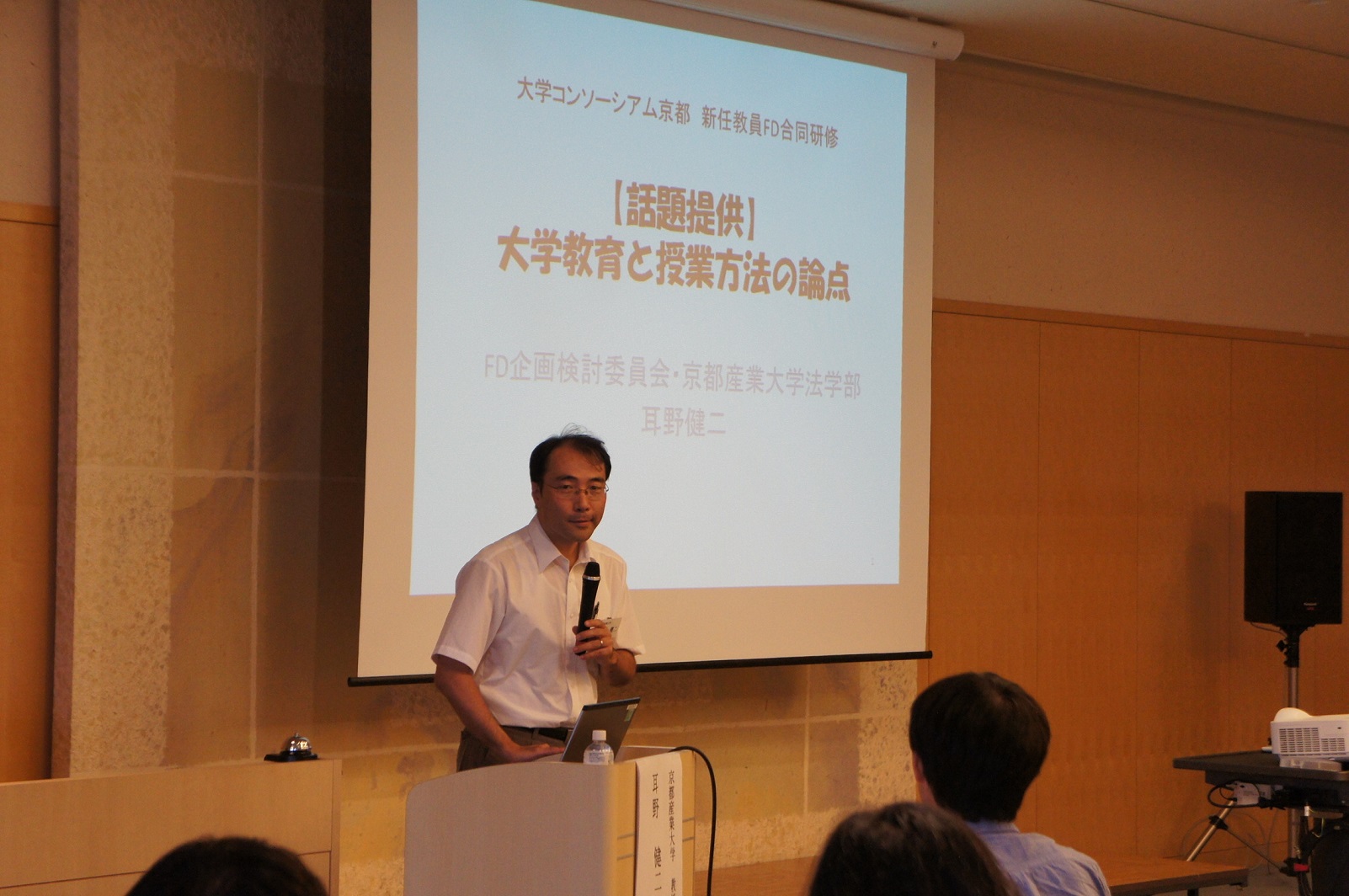
After a Mr./Ms.break, the final lecture of the first day, “Basic Knowledge and Workshop for Learner-Centered Classroom Management,” was given by Professor Tomoko Mori of Kansai University.
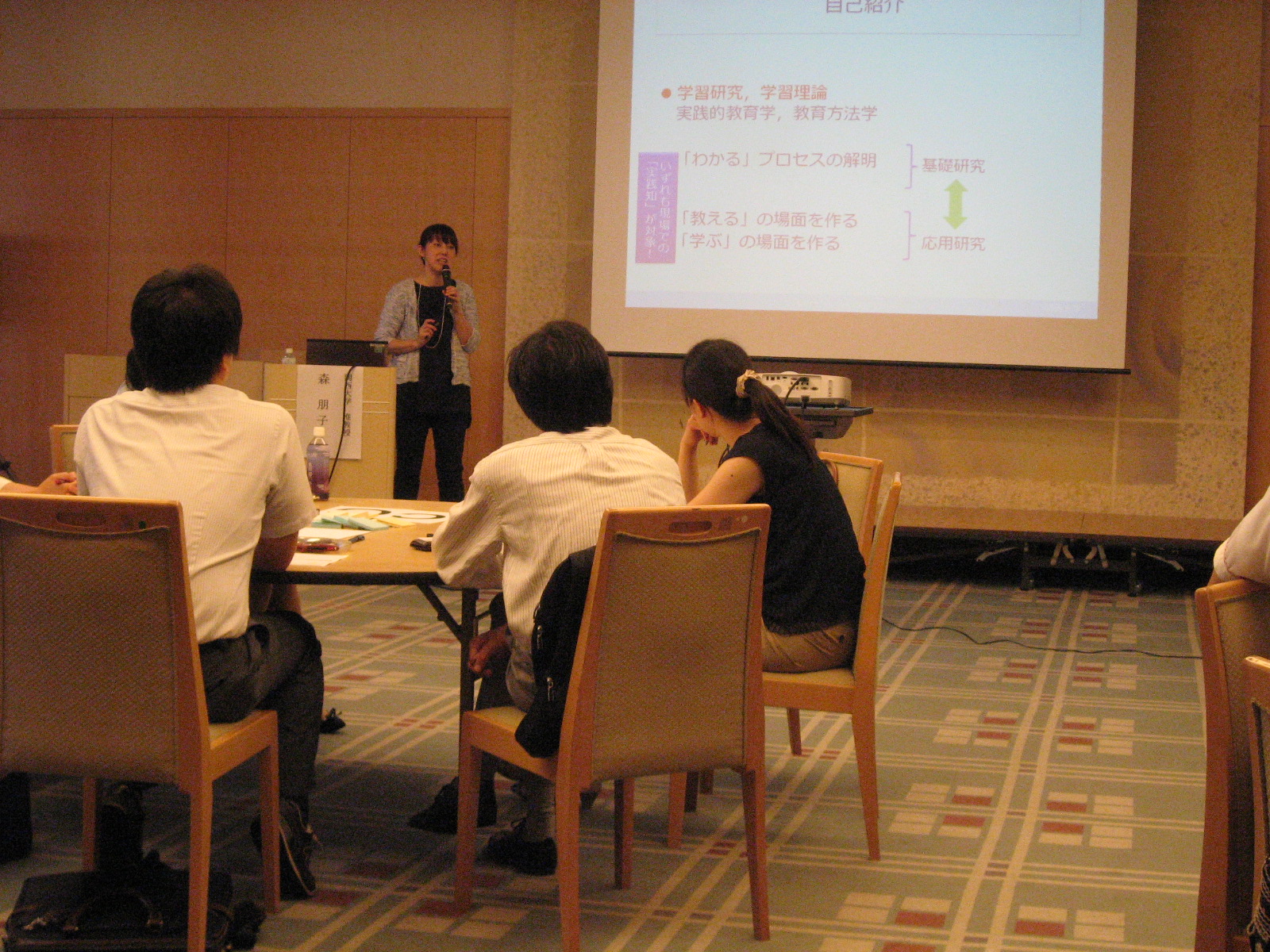
There are five main items, and she talked about the perspective of learning, why it is learner-centered, mini-learning theory, active learning, lesson design that promotes deep learning, and Professor Tomoko Mori’s expertise. Later, in the workshop, under the theme of “Designing Learner-Centered Lessons,” the participants created and presented to each other how to create a theory of the linkage between internalization and externalization in the class.
■ Training Day 2
The second day of the training began with a lecture by Professor Takashi Yasuoka of Ritsumeikan University, entitled “Basic Knowledge for Lesson Design.” Titled “Syllabus as a Prop in the Credit System and Syllabus for the Image of Human Resource Development,” he introduced not only his own classes, but also a curriculum map in the diploma policy from the perspective of the department. In the workshop, the syllabus was reviewed from the perspective of “achievement goals” and “grading method” and rewritten appropriately.
In the afternoon, there was a lecture by Dr. Jun Murata of the Support Room for Students with Disabilities, Kyoto University, entitled “Basic Knowledge and Workshop on Lesson Design.”
The content of the seminar was to consider the current state of support for students with disabilities at universities, understanding and supporting students with developmental disabilities, and communication. In the workshop, participants worked in pairs and gave one person a piece of paper on which they had drawn a shape, and the other person drew a figure using only the words they heard. When drawing shapes, I taught them how to understand the composition and other guidelines firsthand, and I felt the importance of communication in an easy-to-understand manner.
At the end of the training, one participant who participated in the ≪Program A≫ following the Joint Training for New Teachers FD ≪Program B≫ held in March 2015 received a certificate of completion, and 13 participants who participated in the two-day program were awarded a certificate of participation.
Hosted by the University Consortium Kyoto: Joint Training Program ≪ Program B for New Faculty FDs≫
■New Teacher FD Joint Training Program ≪ Program B≫ Implementation Report
On Saturday, March 12 and Sunday, March 13, the University Consortium Kyoto held the “2015 Joint Training Program ≪Program B≫ for New Faculty Members.” This training is planned by the FD Planning and Research Committee with the aim of supporting the educational activities of new faculty members by providing training to new faculty members in cooperation with universities in the Kyoto area. In addition, there are many opportunities for participants to talk freely with each other at the workshop, which is also a place for new faculty members to build a new network.
This year, we welcomed 12 participants from 6 universities.
■Training Day 1
The training began with an “icebreaker.” Divided into three groups, they introduced themselves and said, “The new semester is coming soon. Is there anything you would like to take on a new challenge next year? We tried to interact with each other.
At first, the participants looked nervous, but as the icebreaker progressed, they relaxed and smiled a lot.
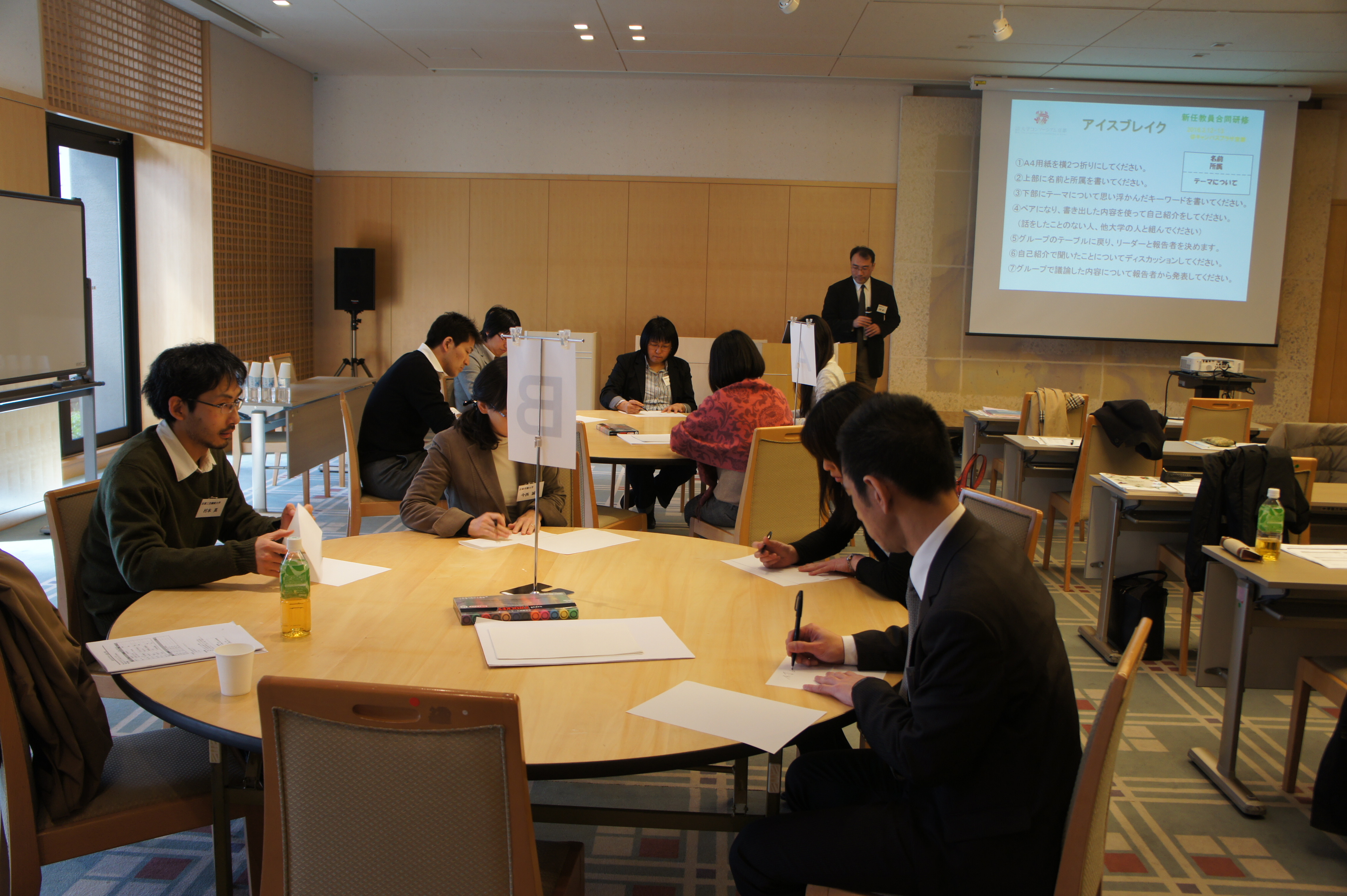
This was followed by a lecture by Hiroshi Kurita, Deputy Secretary General of the Foundation, on “Kyoto’s Universities and Universities in Kyoto” and a group discussion on the theme of “Let’s learn more about Kyoto’s cities and universities.” We used worksheets to introduce our university to each other, and the conversation was lively in a friendly atmosphere.
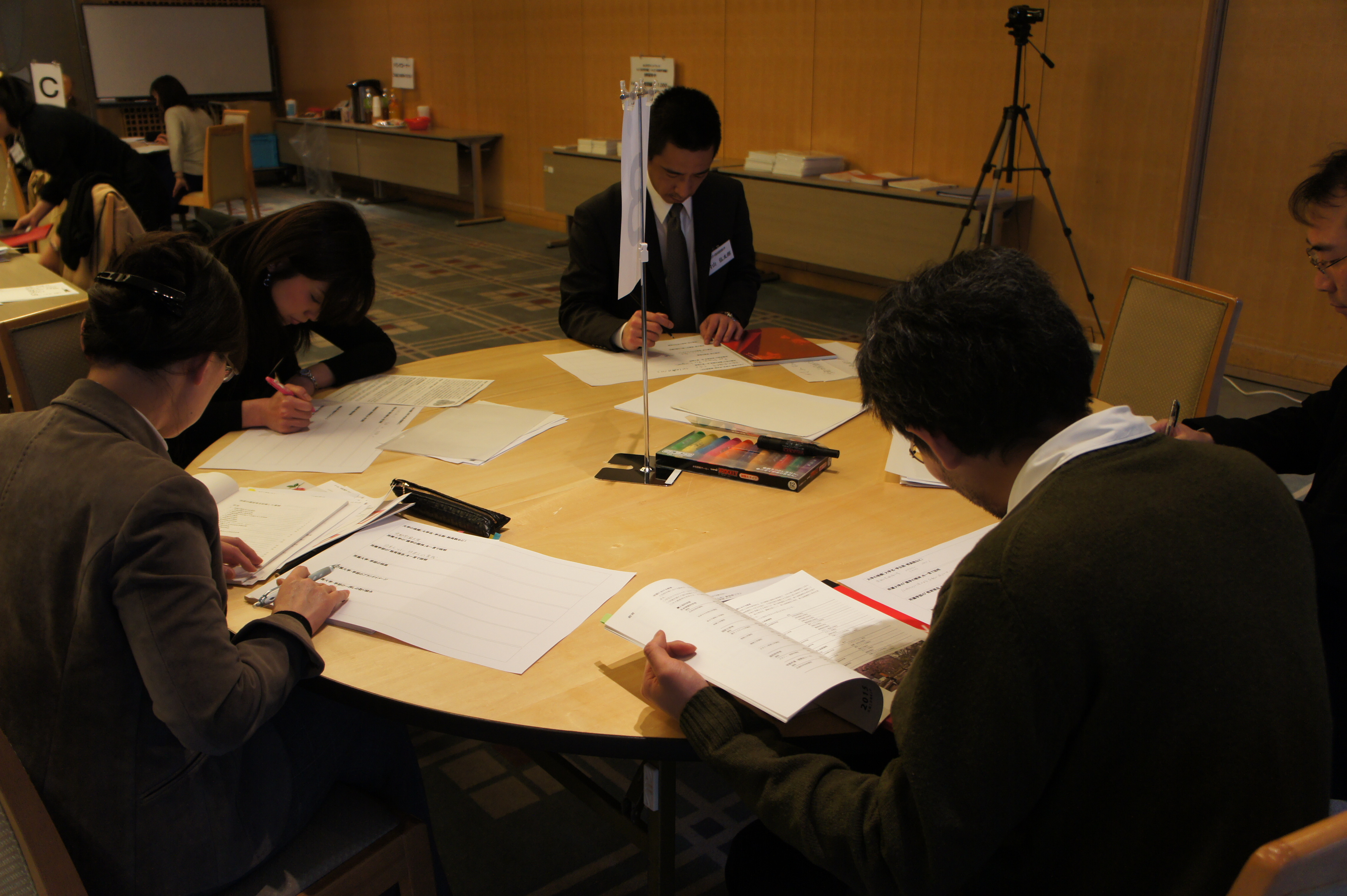
After a break, Professor Katsuhiro Enzuki of Doshisha University gave a lecture on “Basic Knowledge for Lesson Design” Mr./Ms.. Under the theme of “What is a good grade evaluation?”, the participants listened attentively to an easy-to-understand and interesting talk about grading and academic ability, using sports and competitions as examples.
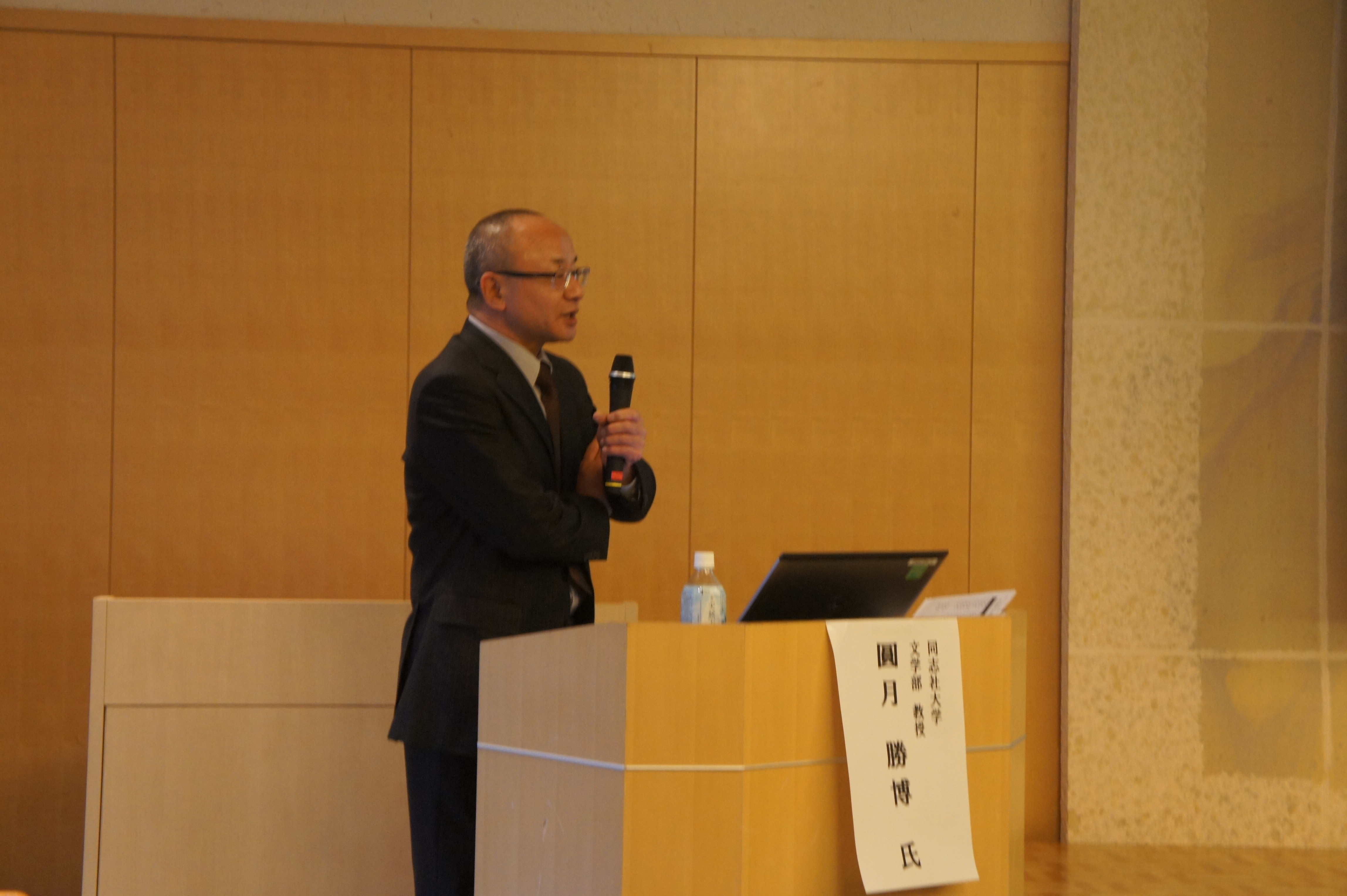
■ Training Day 2
On the second day, after reviewing the previous day, a workshop on lesson design was given by Professor Yuki Oki of Ritsumeikan University. We learned the method of forced linkage as a tool for lesson design, and as a practice, we used the forced linkage method to create our own self-introductions, which led to the use of teaching plans.
The participants took the advice of Dr. Oki seriously and spent about an hour designing a mock lesson using the forced coupling method.
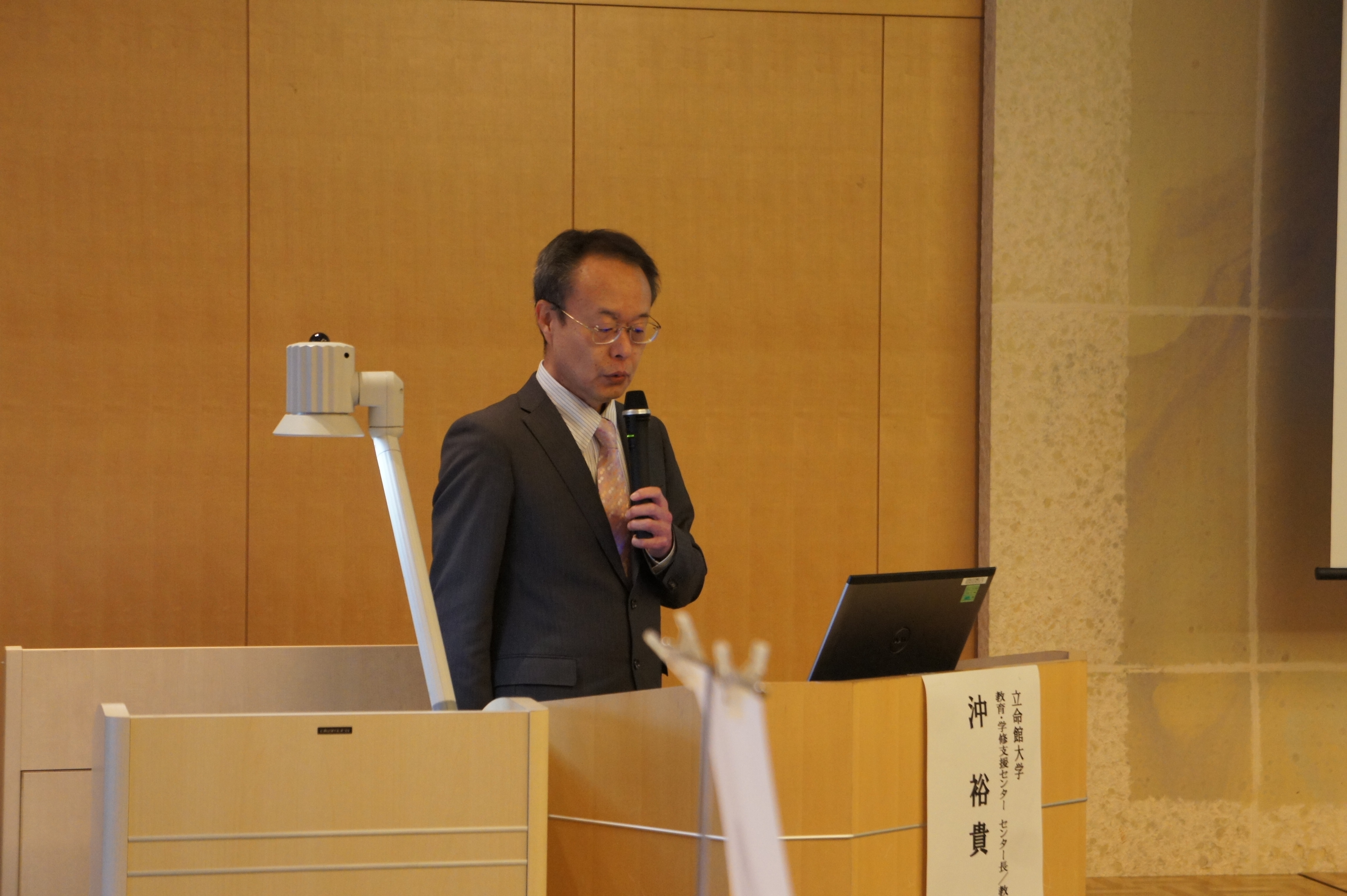
In the afternoon, participants held a 15-minute mock lesson based on their own specialty. Mock classes will be conducted only with a whiteboard and a pen. The other participants acted as students, asking questions and taking notes, even if it was a short time, just like a real class. After that experience, each of them seemed to be able to discover problems and provide clues to solutions by thinking together about their doubts and giving advice.
At the end, the best class was selected for each group, and the reasons for the selection and evaluation were reported.
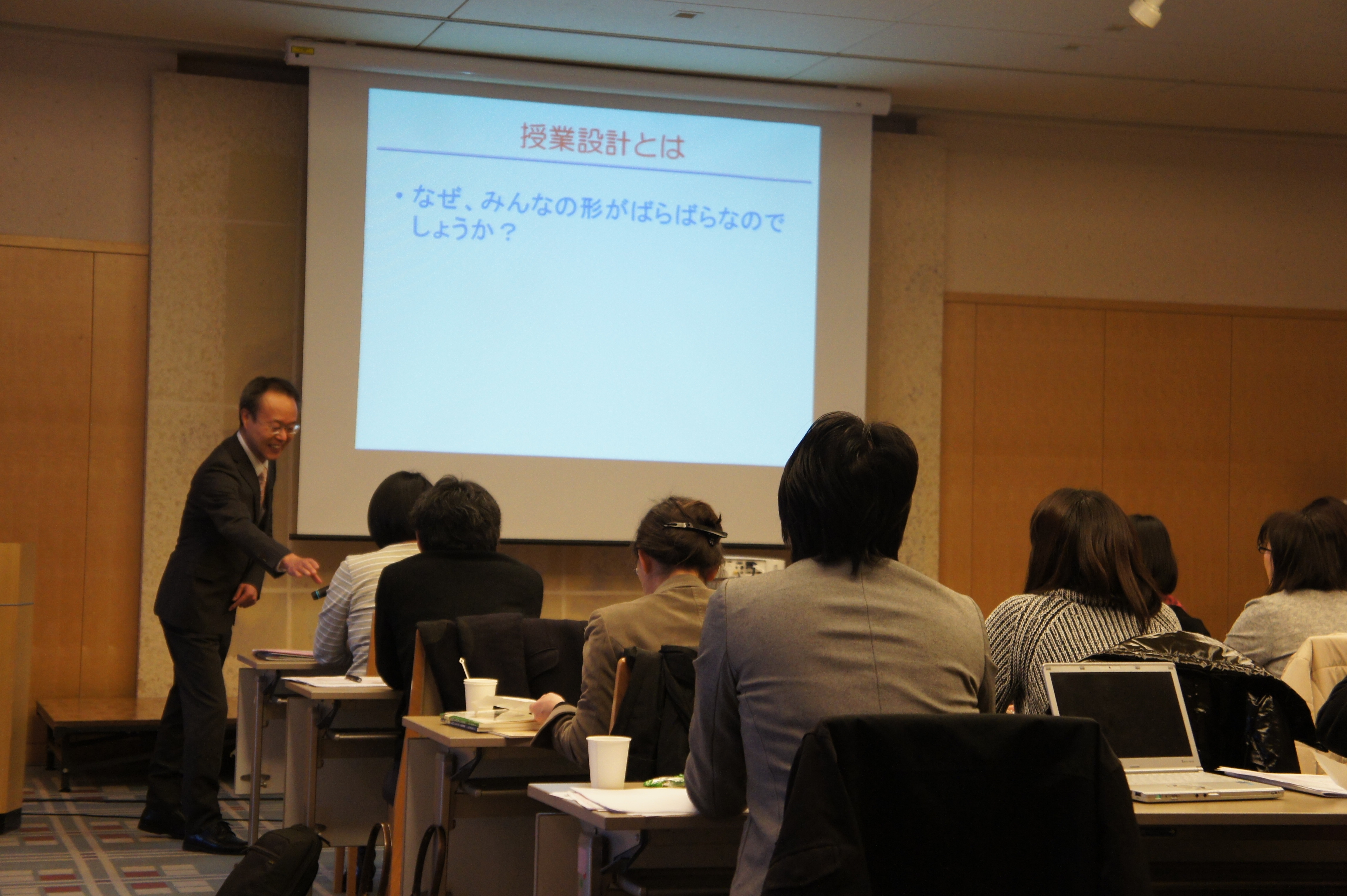
At the end of the training, four participants who participated in the ≪Program B≫ following the 2015 Joint Training Program ≪Program A≫ were presented with certificates of completion, and nine participants who participated in the two-day program were presented with certificates of completion.
Inquiries
University Consortium Kyoto FD Project
TEL 075-353-9163 FAX 075-353-9101
〒600-8216 Shimogyo-ku, Kyoto-shi, Nishitoin-dori, Shiokoji, Shimo-ku, Kyoto, Campus Plaza Kyoto
* Reception hours: Tuesday ~ Saturday 9:00 ~ 17:00 (excluding year-end and New Year holidays)














